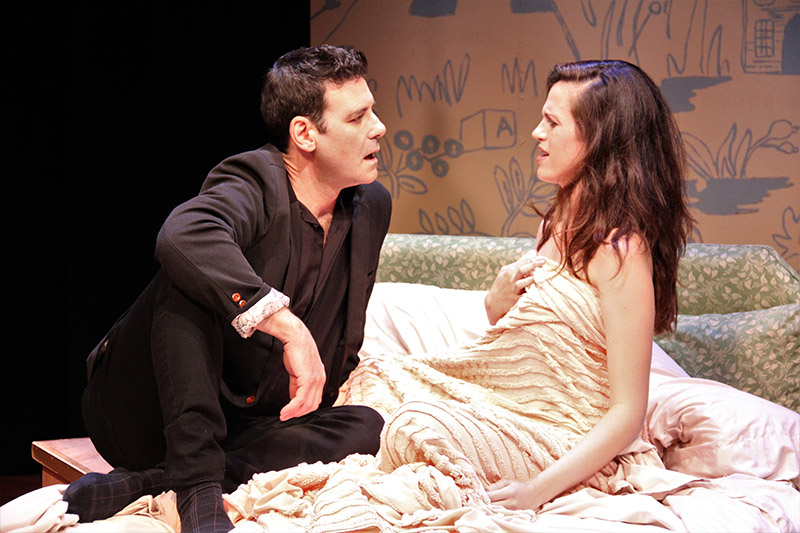“Julius Caesar,” one of Shakespeare’s most-produced plays, has been a hot news topic these past few weeks. In case you missed it, here’s why: The Public Theater production of the play in New York City was subjected to such a firestorm of criticism from right-wing media outlets that two of the production’s sponsors (Delta Airlines and Bank of America) pulled their financial support. Protesters interrupted performances. Director Oskar Eustis received death threats.
Why the sudden fuss over a play already performed hundreds of times in theaters across America for centuries? Because in this recent production, the title character — famously assassinated — was portrayed as Donald Trump.
Ironically, the story does not glamorize or approve of Caesar’s assassination. Once he’s killed, Rome descends into deadly chaos. The play is not a provocation to violence against a leader, but a cautionary tale about such violence. A few years ago, the Guthrie Theatre in Chicago did the play with Caesar portrayed as Barack Obama, and nobody complained.
There are other productions of “Julius Caesar” staged this summer across America. All of them are feeling the reverberations of what happened with the Public.
This includes the Martha’s Vineyard Playhouse production at the Tisbury Amphitheater. But our local “Julius Caesar” is taking a far more original turn than the Public’s: It is performed entirely by women.
“Julius Caesar” is possibly Shakespeare’s most male-dominated work. There are only two female characters, wives who appear in brief supporting roles. All other characters are warriors or politicians, in a society where women could be neither.
“We don’t need to justify it,” says director Brooke Hardman Ditchfield. “We are doing this because we can, and that’s important.” While she does not see Trump as a stand-in for Caesar, she was still dismayed by what he represented. “What put me over the edge was the blatant ease with which the candidate spoke of sexual assault. I didn’t like feeling like I was powerless because of my gender, and I needed to do something about it. I wondered: If the job of art is to reflect back to society what we see as artists, what do I do with my profession?”
She met with Chelsea McCarthy (who is playing Cassius, Caesar’s chief antagonist) and almost immediately realized she wanted to tell a story full of strong women.
She approached MJ Bruder Munafo, the playhouse’s artistic director, who immediately said yes to the all-woman proposal.
How does a troupe of female performers even begin to access that level of masculinity? “We’re having to really shift our core,” says Amy Sabin Barrow, who plays Brutus, the moral center of the play. Ms. Hardman Ditchfield has been working with the women to speak from the lower register of their voices, and move more like men do. “Men move fearlessly through space in a way women rarely have the privilege of doing,” she said.
“Men don’t apologize for the space they take up,” agrees actor Ellie Brelis, who plays both Portia and Octavius. “Doing this helps me realize how much I shrink in my daily life, even how much space I take up on the bus. I’m really honored that I can do this play — not only to do it, but also because it’s awesome to be surrounded by a kick-ass group of women every day.”
“This group is so beautiful,” agrees Liz Hartford (playing the Soothsayer and others). “I’ve been here 10 years, people have come and gone, and now it’s a fantastic group of women, it feels like we’ve put the amphitheater on a new level.”
The entire troupe shares this appreciation, and it may account for the secret weapon of an all-female cast: There is tremendous female bonding, especially for the several artists who have been working together for a decade or longer. This is an efficient, powerful stand-in for the camaraderie of soldiers in the field. These women all have each other’s backs.
Says Ms. McCarthy: “This production is another example in a long series, of a growing troupe associated with the playhouse. The troupe includes Brooke, Amy, Scott [Barrow, artistic associate at the Playhouse and Julius Caesar’s fight choreographer], Sasha [London-Thompson, director of last year’s “Much Ado About Nothing”], Liz, and others. Sometimes this person is a director and that one is an actor, then it switches, or this one might be the babysitter for that one’s kids, or that one’s teacher. The roles keep changing, but the players remain the same. Everybody is loving and generous enough to completely allow each transmutation.”
Lest prospective audience members think a female Caesar is a softer, safer Caesar, be advised: While all ages are welcome to attend, the show is strongly suggested for an audience age 10 or older.
“Julius Caesar” will be performed through August 12, Wednesday through Saturday, at 5 pm at the Tisbury Amphitheater. Cash-only tickets are $20 and available at the door.




